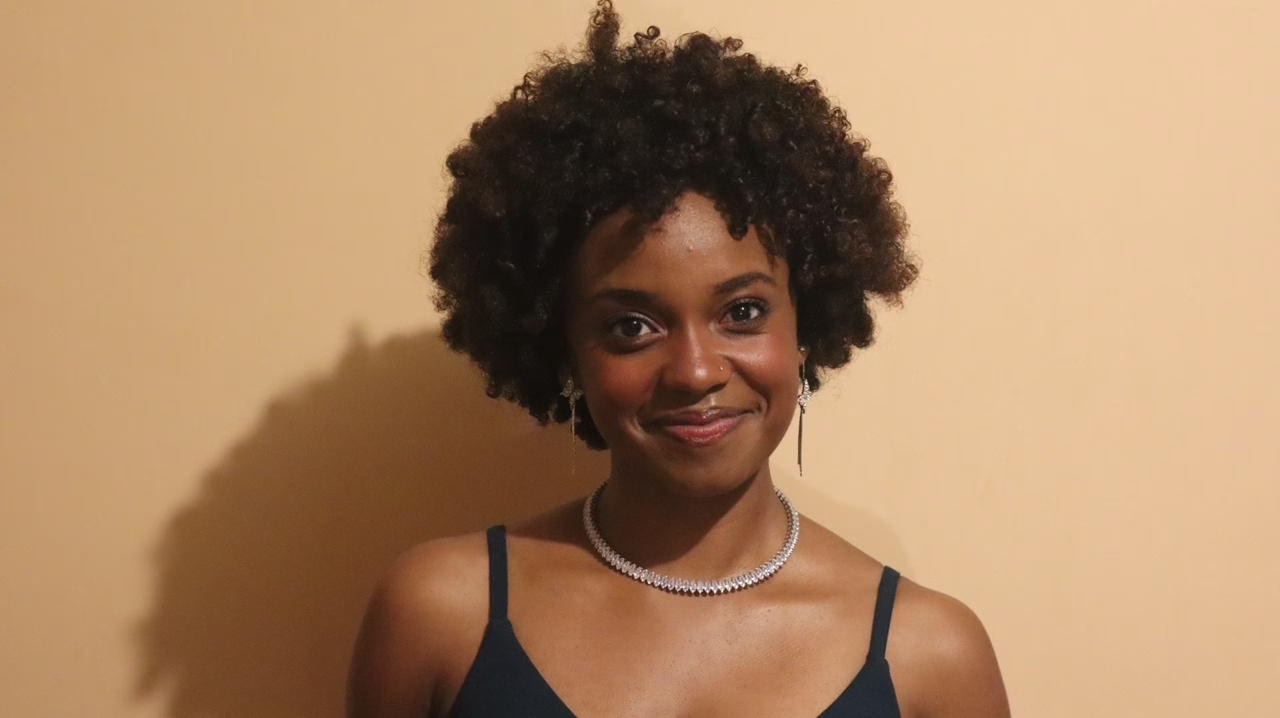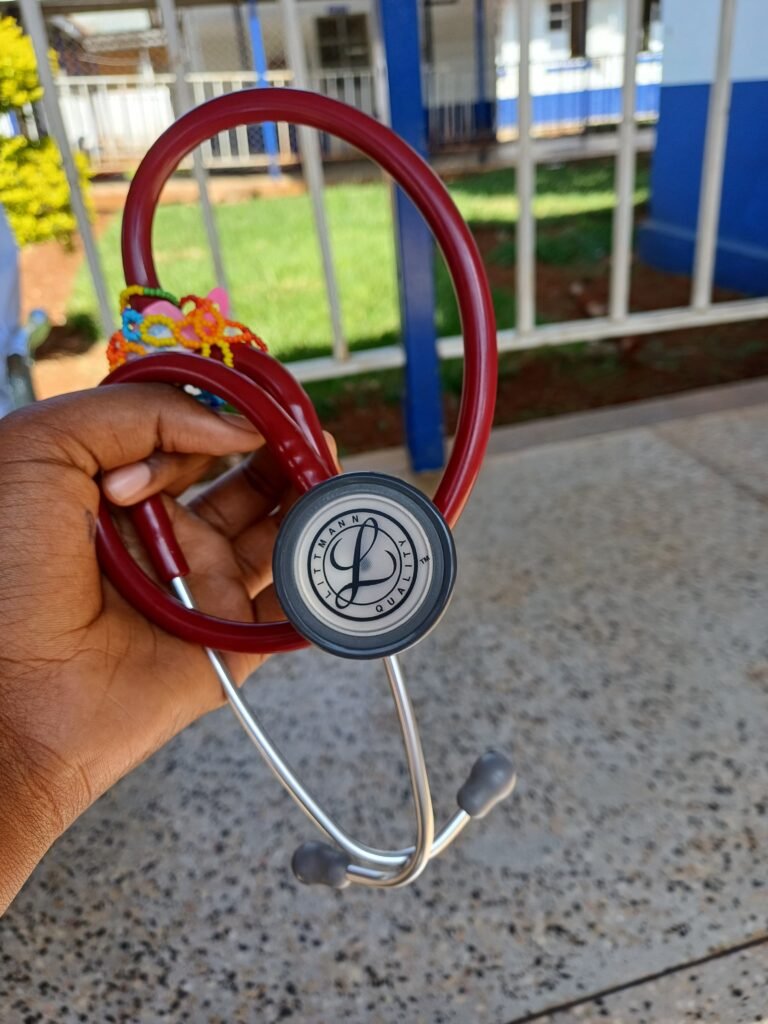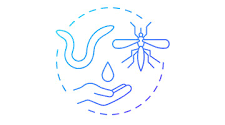Can I tell you a secret? During my junior clerkship, * my stethoscope was always stuffed into my lab coat pocket, out of sight. I never, not ever, wore it around my neck when I was in the ward. I only pulled it out when I needed to use it and then back into the pocket it went.
A doctor is identified by their white coat and stethoscope, easily visible among the sea of patients and other staff in the hospital wards. And I was utterly terrified of that visibility. It meant that when a patient was in need, they would see me in an instant. The white coat alone was bad enough, it had patients calling me “Daktari”, hopeful that I would solve a problem. For example, in the pediatric ward, this could range from, “Daktari mtoto hana line” * to “Daktari saidia! Mtoto anaconvulse” *. Add a stethoscope into the mix and I believed that the requests would multiply, and become increasingly complex.
That thought had me paralysed with fear. I wasn’t ready yet, I hadn’t studied enough, I had zero experience. What if I messed up? And what if my mistake was irreversible and caused a patient avoidable morbidity. Or goodness forbid mortality. Or maybe the senior doctor on the ward would see the stethoscope around my neck and begin to ask me questions that I was ill-prepared to answer. “Daktari,” (I firmly believe this title is used both endearingly and almost mockingly when referring to someone who is clearly NOT a Daktari) “What did you find on the cardiovascular examination of this patient?” And I’d mess up and be dismissed as a joker by asserting that the patient with a plethora of cardiovascular findings had absolutely none. “I thought you were a serious student. Aren’t you studying?”
The dread of being visible led to me skulking around, stethoscope nowhere to be seen. Head down, avoiding eye contact with patients and doctors alike, acid burning a hole into my stomach lining, spending every waking moment in the ward in a state of anxiety akin to that of a hunted animal. It led to countless nights spent cursing myself and this terror that was hindering my personal and professional growth, leaving me deeply unfulfilled. I felt like a failure and a coward, especially since those before me, in my field, in my own family, had shown bravery in much more difficult situations.
I wanted to help. I wanted to walk into the ward and solve a whole bunch of problems right off the bat, answer the patients’ questions, provide gentle reassurance in the calm, heartening way that the more senior doctors did. I wanted to have a conversation with the other medical staff about the management of the patient that I had spent hours clerking and examining, because I had relevant findings, and something to contribute to the discussion. I wanted to be seen at my best, or at the very least trying my best, but was standing in the way of my own deepest desire.
The resultant apprehensiveness and timidity might have seemed to offer safety and peace through avoidance, shielding me from potential pain, or rejection, or humiliation. However, it only left me unfulfilled, unproductive, and feeling quite useless. I say useless, because fear paralyses you. You’re frozen and unmoving and life and experiences continue to pass you by. You can’t think clearly, can’t help anyone. You’re scared to make mistakes, even though they are inevitable, because you believe that these will negate your value, or prove you are a fraud, and that you do not deserve to be in the spaces you occupy.
Life was unbearable. Something had to change. I looked inward and started recognising and accepting where I was falling short, and the ways that this dread and distress were negatively impacting my life. Over time I began the process of separating inherent value from external outcomes. Things began falling into place slowly and I felt, as I had always believed, that when I was completely ready, the fear would finally, finally, fall away on its own. But the months crept on and little changed outwardly.
That is, until I started wearing my stethoscope around my neck.
The shift was gradual but undeniable. This was me facing the dragon. This was me accepting the challenge even though I felt unprepared and unready, and filled with trepidation. This was a change. But the trials followed, just as I had feared they would. The situations I had tried to avoid came to pass again and again.
On several occasions, I have been asked to demonstrate my respiratory and cardiovascular system examination (This is where we use our stethoscopes to listen to the lungs and to the heart of the patient to aid in diagnosis). The first time, my pits were swampy and my voice was trembling. I was chastised, and underwent some public humiliation here and there as my mistakes were pointed out, sometimes not so kindly. But there was a second time and a third time. Somewhere down the line I stopped counting, as I affirmed and reaffirmed that this was something I was capable of doing, scared or not.
I was actively providing evidence to the contrary of what the cruel internal conflict would have had me believe. I had been wrong. The mistakes didn’t provide me with proof of my worthlessness and failure as I thought they would, but rather with opportunities for learning, and ultimately, improvement. Now I answer questions by no means fearlessly, but I answer them, and learn. Also, the repeated questioning has proven useful, because it has led to lots of practice and that continues to build confidence.
Again, on several occasions, questions from patients continued to expose just how much I didn’t yet know, and couldn’t yet do. Our patients will always have questions, and require help. We may forget how disconcerting the experience of being in the hospital is for someone who isn’t there everyday. I might not have the ability to solve all their problems, but there are things that I am able to do. Now I do my best to talk to them, listen to their concerns, and help where I can, whether it’s with something as straightforward as fixing an IV cannula, or more complicated like calling for help and assisting when a resuscitation is needed. All this, standing straight and tall in my white coat and wearing my stethoscope clearly visible around my neck, even though my heart still races in my chest. (And it really does, I’ve used the severally aforementioned stethoscope to confirm.)
By facing your fears head on, and surrendering to the actions you are most scared to perform, you’re able to give them limits. What are you really afraid of? An amorphous, abstract feeling can strike terror into your heart because the worst thing you could possibly imagine becomes a potential outcome in your mind. “What if the sky falls on our heads?”, as Chicken Little would ask.

When you define the fear, and you can only do that by experiencing it face to face, then you know what to expect and how to prepare. You mitigate the anxiety by doing your best to give yourself the tools before-hand to deal with the situation even before it occurs. The vulnerability is excruciating, and the process of showing yourself that another way exists takes time. But step-by-step it gets better in tiny imperceptible ways until you look back and realise that progress has been made.
About a month ago I cut all my hair off. My whole life I’ve had long thick curls and now it’s barely an inch long. The change was jarring but I felt I needed it, for several reasons. An external change to reflect an internal shift in this area of self-acceptance and various others, a fresh start, a separation from external validation. Most of all, a physical reminder of growth.
Hair goes through three phases as it grows. First the anagen stage of active lengthening. Next, a short transitionary catagen phase of regression, followed by a telogen stage of rest from growth, or shedding. Isn’t that a reflection of life in a way, and our journey through it? Periods of active growth, and rest, and sometimes regression. Every day when I look in the mirror I see where I am, and when I cast my memory back, I see where I’ve come from. I’m still very far from where I want to be, and still struggling in areas. However, there is progress being made. There is growth happening.
We are not created to stay the same. Improvement can be painful and uncomfortable. Unavoidable life circumstances can have stunted or delayed your development. There might be some setbacks, or many. But with a little bit of grace and patience and a tiny amount of courage every day, you will make progress that tends towards positive. It’s only inevitable.
To other medical students, or doctors, or anyone who might be struggling with the fear of being seen, or making mistakes, or being less than perfect, take heart. Wear your stethoscope. Take that small step that you’re afraid of, and then another, and another. Growth will follow and you will make it in the end, developing into your best self as I hope to do as well.

Glossary:
Junior clerkship – Part of medical training; the first year(s) we are in the hospital for clinical practice. In my university this is the 4th year of medical school.
Daktari – Doctor
Daktari mtoto hana line – Doctor, my baby doesn’t have an IV cannula in place. (Necessary for patients in the ward to receive IV medications)
Daktari saidia! Mtoto anaconvulse – Doctor, help! My child is convulsing.




